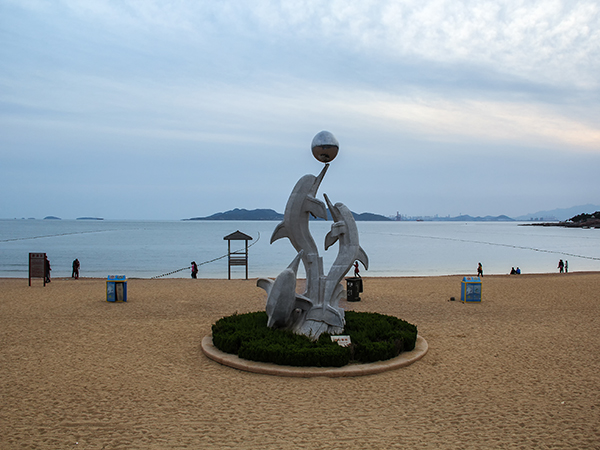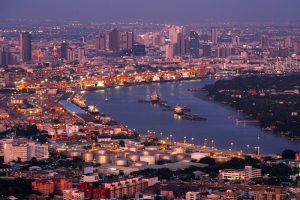(ATF) Qingdao Bank chairman Guo Shaoquan has said his bank will take the lead in developing a new bond sector. The Chinese government is putting a lot of emphasis on developing the ‘Blue Economy’ – linked to the world’s oceans.
In order to exploit this sector, China plans to launch a new category of bonds – “blue bonds”, an official notice has said.
Currently, there is no uniform definition and standard for “blue bonds”. According to the World Bank, the ‘blue bond’ is an innovative debt financing tool that raises funds from investors through the capital market to support projects that have a positive impact on oceans around the globe in an environmental, economic, and climatic sense by promoting marine protection and sustainable use of marine resources.
The first bond clearly marked as “blue” was an issue by the Seychelles – the island republic east of Africa and north of Madagascar – in October 2018, which got a Fitch rating of BB-grade.
Several months later, in January 2019, the Nordic Investment Bank (NIB) issued 2-billion Swedish kronor (about US$200 million) worth of blue bonds with a maturity of 5 years and a coupon rate of 0.375%. This money was raised to provide funds for the protection and restoration of the Baltic Sea.
‘Huge potential’
The blue bond market, while in its infancy, has huge potential, the China Finance Journal says.
The China Banking and Insurance Regulatory Commission has instructed financial institutions to develop this new sector. That includes an order to “actively promote the construction of blue financial think tanks.”
In the field of environmental or “green finance”, China has set up a Green Finance Professional Committee under the Chinese Finance Association and the People ‘s Bank of China.
The Bank of Qingdao announced it will take the lead in this new field of bond issuance.
Qingdao promotes itself as a marine city on the Shandong peninsula’s ‘blue economic zone’. It has marine scientific research institutions such as the Ocean University of China, the Chinese Institute of Oceanography, the Yellow Sea Fisheries Research Institute, as well as new marine research facilities such as the Pilot National Laboratory for Marine Science and Technology, and the National Marine Equipment Quality Inspection Centre.
Concern about Chinese vessels and overfishing
China’s involvement in ‘blue bonds’ is likely to be closely watched by environmental groups, given possible scepticism about its motives. The country has a dismal record in regard to the environment in terms of coal emissions, its damming of hundreds of rivers, and its controversial policies in regard to the world’s oceans – hundreds of millions of dollars in fuel subsidies every year have led to Chinese fishing vessels plundering the world’s oceans and global concern about the depletion of fish in many seas.
A study published in the Science journal in 2016 found that China dominates global fishing, with Chinese-flagged boats accounting for 17 million of the 40 million fishing hours undertaken by large ships worldwide every year – more than the 10 next biggest countries combined.
The United Nations’ Food and Agriculture Organisation (FAO) estimated in a 2018 report that a third of the world fish stocks are subject to overfishing. This has led to greater efforts around the world to counter the problem of Illegal, Unreported and Unregulated (IUU) Fishing.
A report in 2008 by the World Bank and the FAO found that the world’s fishing fleets lose US$50 billion a year due to depleted stocks and poor fisheries management. It said half the world’s fishing fleet could be scrapped with no change in catch. This led to scientists calling for an end to subsidies paid to deep-sea fishery vessels that use weighted nets which are dragged along the ocean floors.
It also led to calls for more aquaculture, or farming of fish in captivity, which has been done for centuries in Asia.
Experts say oceans in the Asia-Pacific region are edging closer to a tipping point due to the unprecedented pace of marine pollution, overfishing and climate change in recent years. But there is some good news – a new report released today by ESCAP, the UN’s Economic and Social Commission for Asia and the Pacific, suggests that the temporary shutdown of activities with reduced human mobility and resource demands due to the Covid-19 pandemic may provide marine environments with much-needed breathing space for them to recover.
























